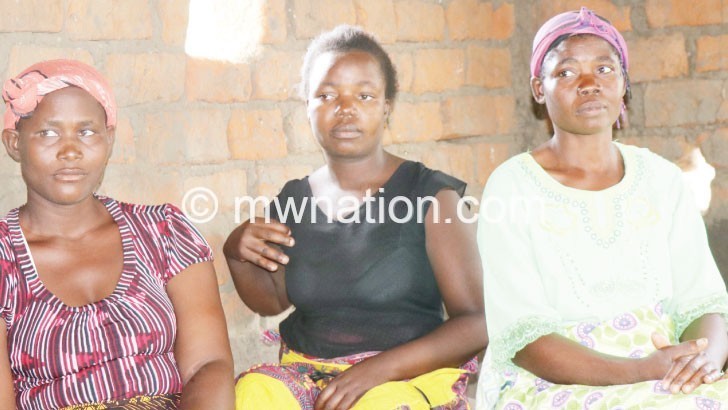Cooperating for better results
About 700 non-governmental organisations (NGOs) are carrying out various interventions to complement government’s development agenda, this is according to the NGO Board Malawi.
Despite the many organisations working in communities nationwide, the welfare of the people remains stagnated in appalling poverty.
“I have seen many NGOs working in various areas, but the impact that is left is mostly questionable,” said Lilongwe-based social and political commentator Godfrey Pumbwa.
According to him, the impact of such initiatives is not clearly seen because organisations do not cooperate and collaborate in their work.

IM Swedish country director Steve Tahuna shares Pumbwa’s thoughts, saying each organisation has an area of focus as such when implementing a project in a community, they tackle one factor while overlooking other factors that would contribute to meaningful societal change.
“NGOs have specific areas of focus in their crafted interventions. As such these interventions are less all-inclusive in nature and implementation. When you only deal with one of the factors contributing to a problem, you risk failure to achieve societal change” he said.
Lived experience
Seventeen-year-old Elizabeth from Mangochi shares her story of how she was withdrawn from marriage earlier this year following interventions by a local NGO.
The NGO (name with-held) worked with the community, chiefs and parents to ensure that the teen returns to school. Six months have passed since she returned to school.
“After I was withdrawn from marriage, I went back to school, but since then I have been struggling financially. I can’t afford to pay school fees and my mother is failing to support me with some scholastic materials,” explained Elizabeth.
When she presented her concerns to the organisation that worked hard to see her withdrawn from early marriage, the NGO told her it could not pay for her fees or give her any scholarship because the project design did not include this window of support.
Elizabeth’s story is one of the many cases where less all-inclusive interventions fail to bring about the desired impact and societal change.
“We seriously need to look into this, indeed some girls are sent back to school, but a lot more needs to be done to keep the girls in school. Firstly, we should understand what caused her to drop out from school and her subsequent early marriage.
“When you identify the problem then you focus on addressing it. Otherwise, just making her go back to school without addressing the challenge that made her leave school, is a non-starter,” said Pumbwa.
Situation on the ground When visiting communities, one usually finds two or four NGOs implementing a similar project in an area.
For example, according to Health Policy Plus report, in Mchinji alone, five NGOs in Mchinji are working in youth friendly health services with some working in one community.
This with no doubt becomes a duplication of work which affects results. However, NGOs are not entirely to blame for this type of trend.
Pumbwa observes that sometimes donors funding the projects are partly to blame as they dictate what NGOs should do in an area.
He suggests that donors should be well informed about communities and the type of interventions required and ensure that communities participate in programme design.
Working together
Given the challenge, some organisations in the country have realised the importance of collaborating and cooperating for better community results.
Traditional Authority (T/A) Mwanza’s area in Salima is an example of an area that is slowly experiencing societal change occasioned by cooperation and collaboration among NGOs, government departments and community leadership.
In the area, Civil Society Education Coalition (Csec), Centre for Youth Empowerment and Civic Education (Cyece) and Women’s Legal Resource Centre (Wolrec) are working with the district council and community members to tackle issues hindering development.
These NGOs partnered following recommendations from one of their donors, IM Swedish Development Partner.
Through Salima District Council, the donor identified NGOs that are working in the area and recommended cooperation and collaboration among them to speed up desired change.
The three NGOs are carrying out projects aimed at retaining girls and children with disabilities in school, empowering women economically and educating girls on sexual and reproductive health rights.
Head teacher and management of Chinkhuli Primary School in the area have expressed satisfaction with the work of NGOs’ saying their interventions have changed the school environment, attitude and behaviour of learners, parents and traditional leaders.
“The community is changing. Now you will hardly see a child at home during school time. This is so because the NGOs have told us the importance of educating our children,” said Chinkhuli Mother Group chairperson Ketrina Luka.





